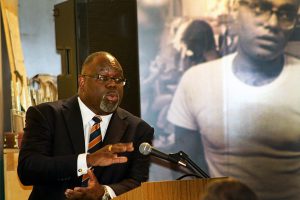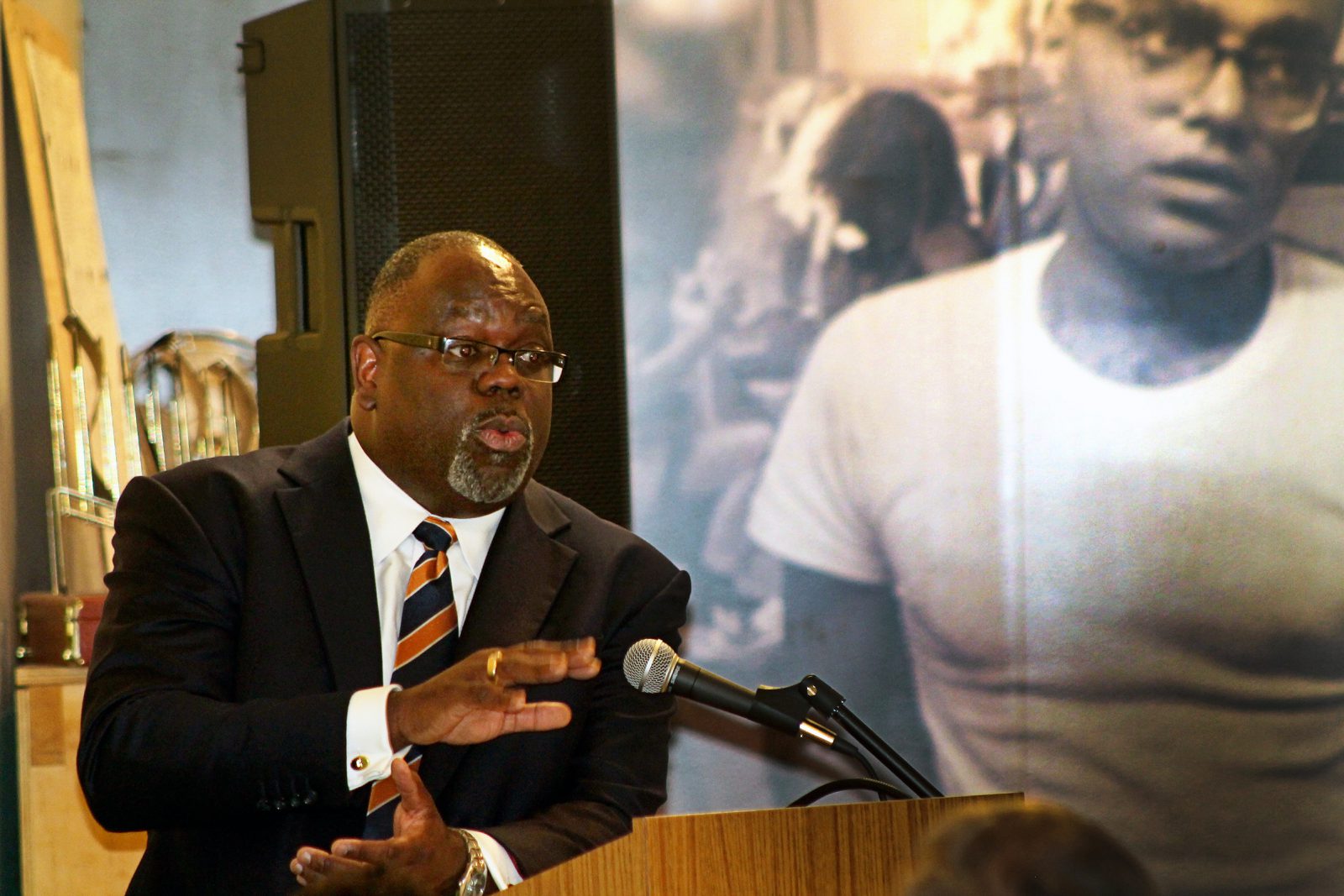“There is work to do for all of us, be it education, politics, economics or business,” U.S. District Court Judge Carlton Reeves told Jackson State University students at a special program Tuesday night to commemorate the Voting Rights Act of 1965 at the Fannie Lou Hamer Institute at COFO.

Speaking about his growing up in Yazoo City to sitting on the federal court bench, Reeves discussed with students topics that included education, voting, constitutional rights and the importance of being aware of who is in office.
African Americans should remember the strategy that Dr. Martini Luther King Jr. used to remind America about how the 13th, 14th and 15th amendments serve justice to the black community, he said.
“Privilege and power comes with law,” said Reeves, a 1986 graduate of JSU. “But it was taken away from blacks until the 1950s. When people say ‘times have changed and to get over it,’ we (black Americans) didn’t have time to grow.”
Telling students to take history seriously, Reeves also brought to light the importance of civic responsibility and encouraged students not to be intimidated. “People don’t know better based off of their experiences,” said Reeves, adding that many issues need to be tackled.
Constitutional values should apply to all Americans, said Reeves, who graduated from the University of Virginia Law School in 1989. If one has faith in the words of the Declaration of Independence and Constitution, they bring it to reality.
“Politics controls everything,” said Reeves. “You can talk about arts education at a school, but where do you think the school receives its funding? Guess who decides how money is spent? People at the Mississippi Legislature.”
Reeves told the audience how economics, infrastructure, education and other issues are tied to the dollar and the vote. Emphasizing how civic education has importance, he advised that people should know their government, who is on their city council, what powers officials hold and other political knowledge.
He also discussed the value of having a cause. “You have to find your cause. … When people hear your name, let it be identified with a cause. Something of substance.”
Reeves was appointed to the federal court bench by President Barack Obama in 2010.
Isaiah Brydie, a senior in political science from Tulsa, Okla., who serves as “Mister Pre-Law” for the JSU pre-law society that co-hosted the event, was the moderator.
“It was an honor to have Judge Reeves at Jackson State,” said Brydie. “He was very empowering and more than what I expected. To have him speak at the university was an amazing experience. His ability to be a strong black male leader and an American patriot along with his belief in the Constitution and belief in the strength of the African-American culture is something I haven’t seen in anyone else.”
“It was really monumental to have someone who is essentially a living legend come here who is a Jackson State alumni,” said Justin Wills, a junior, political science major from Chicago. “He is a Jackson State product and is one of two black federal judges in Mississippi and I just thought that was great. It was great to know about the trail he blazed and the legacy he left. He paved the way for young black men and women to become lawyers from Jackson State and to go on and become judges.”
Jeremy Anderson, a sophomore Mass Communications major from Baton Rouge, La., said: “It was a wonderful experience to have Reeves come back to Jackson State and shed light on history to the students. It was a pleasure to be on the panel and to ask him questions and meet him in person. The knowledge he’s shined upon us was valuable to the point where I can’t put it into words.”
The 50th Commemoration of the march in Selma, Ala., provided the impetus for the event at the Council of Federated Organizations (COFO) building. It was hosted by the JSU Division of Institutional Advancement, the College of Liberal Arts, and the Fannie Lou Hamer Pre-Law Society of JSU.







